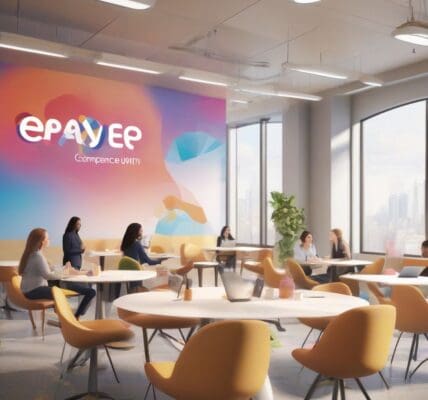As retail continues to adapt to the changing landscape of e-commerce, Salesforce has recently highlighted a significant increase in sales during Cyber Week, projecting a remarkable $311 billion in global sales. This period, observed from the Tuesday before Thanksgiving to Cyber Monday, promises to be a crucial time for retailers as they engage consumers eager to take advantage of discounts and offers.
Despite a slight downturn in online sales from October 1 to November 14, which saw a 1% decrease year-over-year, the first week of November marked an encouraging 8% rise in online sales compared to the same week last year. This uptick showcases the potential for a flourishing holiday shopping season. The data emphasizes that, while October may traditionally indicate a slow shopping start, early November’s performance suggests that consumer interest is piquing just in time for Cyber Week.
Salesforce analyzed consumer behavior and found that 45% of global consumers are opting to hold off on purchases until Cyber Week, highlighting a collective anticipation for better deals. As retailers gear up for this crucial period, it is imperative to consider what strategies can be employed to tap into this waiting market.
Furthermore, Salesforce reported that discounts during the early November period peaked at an average rate of 20%, a 17% increase from the previous year. This indicates that consumers are more likely to respond positively when presented with compelling offers. Retailers looking to capitalize on this trend should emphasize their discount strategies in marketing campaigns.
In terms of product categories, three segments have shown tremendous growth leading up to the holidays. Makeup has increased by 10% year-over-year, active footwear by 9%, and handbags and luggage by 8%. For retailers focusing on these niches, understanding consumer preferences in these markets can help in crafting effective marketing messages.
As we look towards 2024, the role of Artificial Intelligence (AI) in shaping consumer shopping experiences cannot be overlooked. Salesforce expects that mobile orders, discounts, and AI applications will significantly influence sales. In light of this, retailers must consider how they can integrate AI tools to enhance customer service and satisfaction.
Salesforce’s new Agentforce features, which were introduced to improve the shopping experience, include autonomous agents capable of providing personalized service. Michael Affronti, Senior Vice President and General Manager of Commerce Cloud at Salesforce, suggests that these agents could transform the holiday season by offering timely and efficient customer service. Personalized interactions may help create a more engaging shopping experience, thus increasing consumer loyalty and driving sales.
The success of online retailers heavily reliant on platforms such as Salesforce is evident. In North America, 76 out of the top 2000 online retailers utilize Salesforce for their e-commerce operations. These merchants collectively achieved over $136 billion in web sales in 2023, underscoring the platform’s significance in the retail ecosystem.
While the predictions for Cyber Week indicate a fruitful season, tailoring marketing efforts to meet the expectations of discerning consumers remains crucial. Engaging with potential customers before and throughout Cyber Week, while utilizing data derived from AI-driven insights, can create targeted campaigns that resonate.
As retailers prepare for the busy holiday season, understanding consumer behavior, offering compelling discounts, and leveraging technology like AI will play an essential role in their success. The retail environment is changing rapidly, and those who adapt will benefit the most.
Ultimately, Cyber Week presents an opportunity for retailers to not only boost sales but also establish long-term relationships with consumers who appreciate personalized experiences. By prioritizing customer-centric strategies, businesses can turn first-time shoppers into loyal customers in the years to come.












